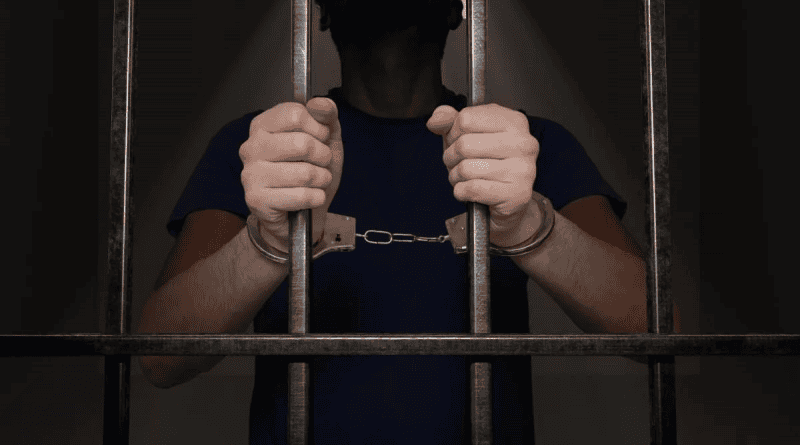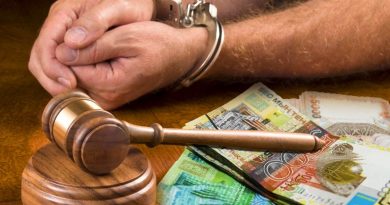Kazakhstan: prisoners complain of violence
Another scandal broke out in the correctional institution ЛA-155/14, located in the village of Zarechny in Almaty region.
Convicts, who are serving their sentences in this general regime colony, turned to human rights organizations with a complaint. The appeal states that on April 26, “planned search measures” took place in the institution, during which the convicts were subjected to psychological pressure, the use of physical force by the officers of the National Guard. The convicts reported the numbers of the identification badges of the officers of the National Guard who committed illegal acts. Among the victims is the political prisoner Almat Zhumagulov. A statement of cruel treatment, submitted to Zhumagulov’s lawyer, was signed by 42 convicts.
It should also be noted that another political prisoner, Kenzhebek Abishev, is serving his sentence in ЛA-155/14. According to human rights activists, Abishev’s health condition raises serious concerns.
All this was discussed at the press conference of Kazakhstan International Bureau for Human Rights. As the director of the KIBHR, human rights activist Yevgeny Zhovtis noted in his speech, violation of the rights of prisoners during search activities is typical not only for the colony in Zarechny, but for all correctional institutions in Kazakhstan.
“The systemic problem is that places of deprivation of liberty are under the jurisdiction of the Ministry of Internal Affairs,” said the human rights activist. “Our entire penitentiary system is militarized. Correctional institutions are ruled by people in uniform, people with a truncheon, whose main task is to guard and intimidate. The search measures are aimed precisely at this. Why are searches carried out in general? To find prohibited items from prisoners: knives, drugs, telephones, alcohol, and so on. But where did the prisoners get these items from? Studies have shown that less than 15% of items are brought by relatives. And in 80% of cases, the employees of the institutions themselves bring these items.”
At the same time, he emphasized that the administration of correctional institutions is well aware of what the prisoners have. And the purpose of the searches is intimidation.
“For both the staff and the officers of the National Guard, prisoners are second-class people who can be mocked with impunity. So this is a systemic problem of how the penitentiary system is organized in Kazakhstan. It’s the heir to the Stalinist gulags. As for political prisoners, they have a special attitude towards them in places of deprivation of liberty.
Therefore, both Zhumagulov and Abishev are denied parole. They are denied not because they don’t deserve it or pose some kind of threat to society, but precisely because they are political. They are also treated in a special way, which causes concern.
Now, some steps are being taken to remove doctors working in prisons from the jurisdiction of the Ministry of Internal Affairs and transfer them to the subordination of the Ministry of Public Health. It’s right, but it’s necessary to remove the entire penitentiary system from the Ministry of Internal Affairs,” Zhovtis summed up.
In turn, the head of the Public fund “Aman-Saulyk” Bakhyt Tumenova recalled that those, who are in prison, are only deprived of freedom.
“But no one can deprive them of their constitutional right to receive medical care, the right to choose its availability and quality. However, this right is violated everywhere,” Tumenova stated.
She also confirmed that the state of health of Kenzhebek Abishev really raises concerns.
“Our fund has received an extract from Kenzhebek Abishev’s outpatient card for examination. We gave it to the doctor of the highest category, Master of Medical Sciences Rakhima Dyuisenova. And on the basis of this extract, we can conclude that Abishev, born in 1966, has many different diseases: coronary heart disease, angina pectoris, arterial hypertension, chronic heart failure, chronic obstructive pulmonary disease in remission, pulmonary fibrosis, respiratory failure. And all this against the background of aggravating diabetes. Also, he has very low blood pressure. This is a very bad sign. If you don’t provide him with appropriate treatment and care, then there may be cardiac arrest. However, he not only doesn’t receive treatment, but also doesn’t receive the necessary examinations. This is a real threat to his life,” Tumenova said.
According to the complaint of 42 prisoners from ЛA-155/14, the National Guard’s officers conducted searches in the premises of brigades 6, 7, 8, 9 without the presence of the convicts. After that, personal belongings and items, that were not included in the list of prohibited items, disappeared. At the same time, there is no document of seizure of these items.
“The event looked like a pogrom, robbery and looting. In response to legal demands to invite the prosecutor and the commander of the National Guard, the officers began to insult, threaten, using obscene language, calling us sufferers, and used physical violence against Almat Zhumagulov, P. Zankanchidi, V. Novikov, S.A. Lipchenko, S. Seksenov and other convicts,” was indicated in the complaint.
According to human rights activist Andrei Grishin, immediately after the search activities, the Coalition Against Torture sent its lawyer to the institution. However, the administration of the institution didn’t let the lawyer into the colony, making reference to tougher quarantine measures.
“It’s obvious that Almat Zhumagulov was beaten. It’s possible that the administration of the colony refused his lawyer to visit him for a reason, referring to quarantine measures. Although not long ago, they didn’t exist,” Grishin says.
It’s worth recalling that Almat Zhumagulov and Kenzhebek Abishev are on the list of political prisoners.




